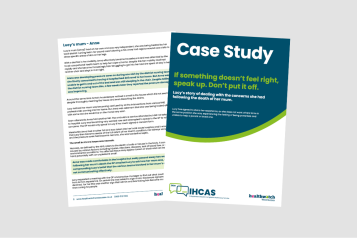Shifting the mindset: a closer look at NHS complaints

Healthwatch England's new report – Shifting the mindset (2020) – investigates how hospitals report on complaints and whether current efforts are sufficient to build public trust.
Complaints should be seen by hospitals as an opportunity to learn
There has been some positive change in the years following the Mid Staffordshire Inquiry to improve openness and transparency in the NHS. Yet when it comes to complaints, many hospitals are too focused on process rather than demonstrating how they’ve listened.
Hospitals, indeed the NHS more broadly, need to shift the mindset on complaints. Reporting needs to look beyond the numbers and response times and focus more on how to effectively demonstrate to patients and the public what has been learnt. This is the only way to give the public confidence that their concerns are being listened to and acted on.
Key findings
Local reporting on complaints is inconsistent and inaccessible
- All hospital trusts are reporting to NHS Digital on the numbers of complaints they receive; however, only a minority of trusts report any more meaningful data at a local level.
- Our analysis shows just 1 in 8 hospitals trusts (12%) are demonstrating that they are compliant with the statutory regulations when it comes reporting on complaints.
Staff are not empowered to communicate with the public on complaints
- All hospitals must produce an annual statutory complaints report but they are only required to make it available to people upon request. Yet we found that hospital complaints staff were often not aware of the reports or who could access them.
Reporting focuses on counting complaints, not demonstrating learning
-
Only 38% of trusts make public any information on the changes they’ve made in response to complaints.
- Much of this reporting is still only high-level, telling us little detail about what has changed and only stating that “improvements were made”.


